-
 Bitcoin
Bitcoin $112400
-1.07% -
 Ethereum
Ethereum $3409
-3.27% -
 XRP
XRP $2.784
-6.60% -
 Tether USDt
Tether USDt $0.9997
-0.03% -
 BNB
BNB $739.3
-2.09% -
 Solana
Solana $158.0
-2.90% -
 USDC
USDC $0.9998
-0.02% -
 TRON
TRON $0.3213
-0.94% -
 Dogecoin
Dogecoin $0.1929
-5.01% -
 Cardano
Cardano $0.6974
-2.82% -
 Hyperliquid
Hyperliquid $36.69
-2.31% -
 Sui
Sui $3.327
-4.80% -
 Stellar
Stellar $0.3672
-5.18% -
 Chainlink
Chainlink $15.65
-3.07% -
 Bitcoin Cash
Bitcoin Cash $525.0
-1.68% -
 Hedera
Hedera $0.2291
-6.00% -
 Avalanche
Avalanche $20.91
-2.96% -
 Ethena USDe
Ethena USDe $1.000
0.00% -
 Toncoin
Toncoin $3.520
-1.12% -
 UNUS SED LEO
UNUS SED LEO $8.968
0.14% -
 Litecoin
Litecoin $105.7
0.26% -
 Shiba Inu
Shiba Inu $0.00001181
-1.79% -
 Polkadot
Polkadot $3.492
-2.08% -
 Uniswap
Uniswap $8.800
-3.10% -
 Dai
Dai $0.9999
-0.01% -
 Monero
Monero $289.9
-3.17% -
 Bitget Token
Bitget Token $4.243
-1.27% -
 Pepe
Pepe $0.00001006
-3.67% -
 Cronos
Cronos $0.1248
-5.68% -
 Aave
Aave $249.7
-2.50%
How to trade Bybit leveraged tokens? Is the risk higher than the contract?
Bybit leveraged tokens simplify trading with automatic leverage management, but daily rebalancing and fees add risk; always monitor positions closely.
May 19, 2025 at 06:57 am
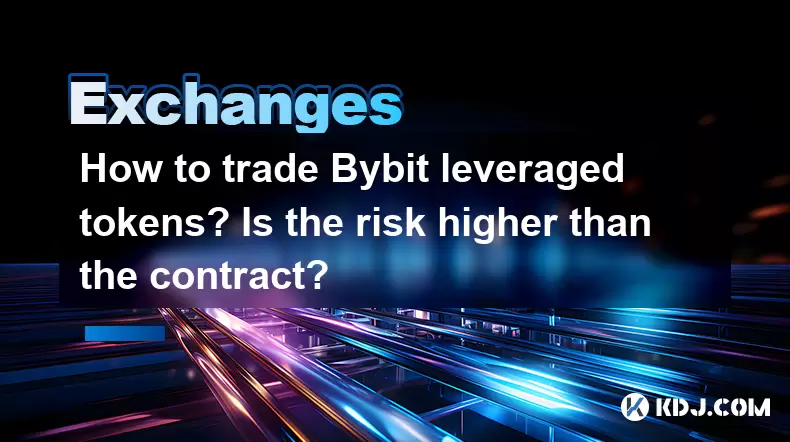
Trading Bybit leveraged tokens can be an exciting way to engage with the cryptocurrency market, offering a unique approach to leverage without the complexities of managing futures contracts directly. Bybit, a leading cryptocurrency exchange, introduced leveraged tokens to simplify the trading experience while still providing the potential for high returns. However, with the potential for higher returns comes increased risk, which is often a point of concern for traders. In this article, we will explore how to trade Bybit leveraged tokens, delve into the mechanics behind them, and discuss whether the risk associated with them is higher than that of trading contracts.
What Are Bybit Leveraged Tokens?
Bybit leveraged tokens are financial instruments that allow traders to gain leveraged exposure to the price movements of cryptocurrencies without needing to manage positions directly. These tokens come in two forms: long (e.g., BTCUP) and short (e.g., BTCDOWN). Long tokens aim to benefit from the price increase of the underlying asset, while short tokens profit from a price decrease.
The unique aspect of Bybit leveraged tokens is that they automatically manage leverage and rebalance daily. This means that the leverage is kept constant at 1x to 3x, depending on the token, and the position is rebalanced to maintain this level of leverage. This feature simplifies the trading process for users who might not want to deal with the intricacies of managing margin and leverage themselves.
How to Trade Bybit Leveraged Tokens
Trading Bybit leveraged tokens is straightforward and can be done through the Bybit platform. Here’s how you can get started:
Sign Up and Verify Your Account: First, you need to create an account on Bybit and complete the necessary KYC (Know Your Customer) verification process. This is essential for trading any financial product on the platform.
Deposit Funds: Once your account is set up, you need to deposit funds into your Bybit wallet. Bybit supports various cryptocurrencies, so you can choose the one you wish to use for trading.
Navigate to the Leveraged Tokens Section: On the Bybit platform, go to the "Leveraged Tokens" section. Here, you will see a list of available tokens, including both long and short options for various cryptocurrencies.
Select and Purchase a Token: Choose the token you want to trade based on your market analysis and risk appetite. For example, if you believe the price of Bitcoin will rise, you might buy BTCUP. If you think it will fall, you might opt for BTCDOWN.
Monitor and Manage Your Position: After purchasing the token, you can monitor its performance through the Bybit platform. Remember that these tokens rebalance daily, so there’s no need for you to manually adjust your leverage.
Sell the Token: When you decide to exit your position, you can sell the leveraged token back on the Bybit platform. The profit or loss will depend on the price movement of the token since you bought it.
Understanding the Risks of Bybit Leveraged Tokens
While Bybit leveraged tokens offer a simplified way to trade with leverage, they come with their own set of risks. Here are some key points to consider:
Daily Rebalancing: The daily rebalancing of leveraged tokens can lead to compounding effects that might either amplify gains or losses. This means that the token’s performance might not perfectly track the underlying asset's price movement over longer periods.
Volatility: Cryptocurrencies are inherently volatile, and when you add leverage to the mix, the potential for significant gains or losses increases. With leveraged tokens, even small price movements in the underlying asset can result in larger changes in the token’s value.
Management Fees: Bybit charges a management fee for holding leveraged tokens, which can eat into your returns over time. It’s important to factor these costs into your trading strategy.
Comparing the Risk of Leveraged Tokens to Contracts
When comparing the risk of Bybit leveraged tokens to that of trading contracts, several factors come into play:
Complexity: Trading futures contracts involves managing margin, setting stop-losses, and adjusting leverage, which can be complex and require more active management. Leveraged tokens, on the other hand, simplify this process by automatically managing leverage and rebalancing daily.
Leverage Management: With futures contracts, traders have more control over the level of leverage they use, which can be both a benefit and a risk. If not managed properly, high leverage can lead to significant losses. Leveraged tokens, with their fixed leverage, remove this aspect of risk management from the trader’s hands.
Potential for Losses: Both leveraged tokens and futures contracts can result in significant losses due to the use of leverage. However, the automatic rebalancing of leveraged tokens can sometimes lead to unexpected outcomes, especially in highly volatile markets.
Liquidity: Futures contracts often have higher liquidity than leveraged tokens, which can affect the ease of entering and exiting positions. Higher liquidity can lead to better price execution and lower slippage, which is an important consideration for risk management.
Practical Example of Trading Bybit Leveraged Tokens
To illustrate how trading Bybit leveraged tokens works, let’s consider a practical example:
Scenario: You believe that the price of Ethereum (ETH) will increase over the next few days. You decide to buy ETHUP, a 3x long leveraged token for Ethereum.
Action: You navigate to the Bybit platform, go to the "Leveraged Tokens" section, and purchase 10 ETHUP tokens at a price of $100 each, spending a total of $1,000.
Outcome: Over the next few days, the price of Ethereum increases by 10%. Due to the 3x leverage, the value of ETHUP increases by approximately 30%, moving the price to $130 per token.
Profit: You decide to sell your 10 ETHUP tokens at $130 each, receiving $1,300. Your profit is $300, representing a 30% return on your initial investment.
In this example, the leverage amplifies your gains. However, if the price of Ethereum had decreased by 10%, the value of ETHUP would have dropped by approximately 30%, resulting in a loss of $300.
Frequently Asked Questions
Q: Can I hold Bybit leveraged tokens for the long term?
A: While it is technically possible to hold Bybit leveraged tokens for the long term, it is generally not recommended due to the daily rebalancing and compounding effects that can lead to significant deviations from the underlying asset's performance over time. These tokens are better suited for short-term trading strategies.
Q: Are there any limits on the amount of leveraged tokens I can buy?
A: Bybit may impose limits on the amount of leveraged tokens you can buy, depending on various factors such as your account type and the liquidity of the token. It’s important to check the specific limits on the Bybit platform before making a purchase.
Q: How does Bybit handle the rebalancing of leveraged tokens?
A: Bybit automatically rebalances leveraged tokens daily to maintain a constant level of leverage. This process involves buying or selling the underlying asset to adjust the token’s exposure, ensuring that the leverage remains at the specified level (e.g., 1x, 2x, or 3x).
Q: Can I use stop-loss orders with Bybit leveraged tokens?
A: Bybit does not currently support stop-loss orders directly for leveraged tokens. However, you can manually monitor your positions and sell the tokens when you reach your desired exit point.
Disclaimer:info@kdj.com
The information provided is not trading advice. kdj.com does not assume any responsibility for any investments made based on the information provided in this article. Cryptocurrencies are highly volatile and it is highly recommended that you invest with caution after thorough research!
If you believe that the content used on this website infringes your copyright, please contact us immediately (info@kdj.com) and we will delete it promptly.
- Shiba Inu's Successor? Ruvi AI's ROI Forecast Turns Heads
- 2025-08-03 06:30:12
- Ruvi AI vs. Tron: Can AI Outpace the Crypto Giant on CoinMarketCap?
- 2025-08-03 07:10:12
- XRP ETF Hopes Fuel Altcoin Frenzy: Solana, Pi Coin, and the Next Big Thing
- 2025-08-03 07:10:12
- Price Prediction Palooza: Breakouts, Retests, and a Sprinkle of Crypto Magic
- 2025-08-03 06:35:12
- Ruvi AI: The AI Token on Cardano Set to Dominate After CMC Listing
- 2025-08-03 04:50:12
- Altcoins in the Spotlight: Cardano, Shiba Inu, and the Quest for Crypto Supremacy
- 2025-08-03 05:30:12
Related knowledge
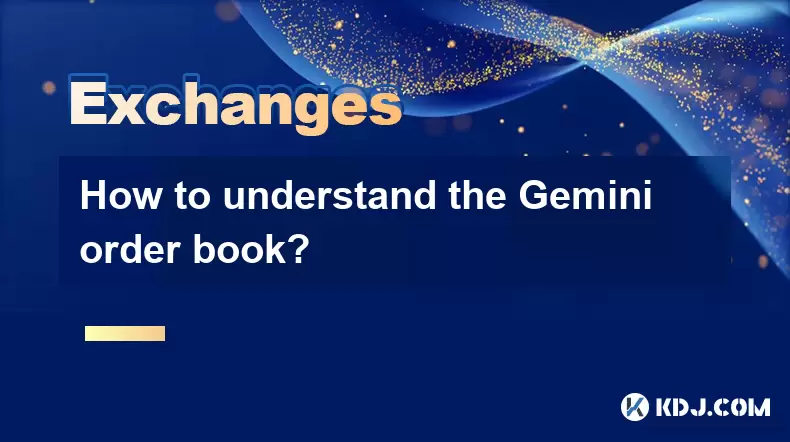
How to understand the Gemini order book?
Aug 02,2025 at 03:35pm
What Is the Gemini Order Book?The Gemini order book is a real-time ledger that displays all open buy and sell orders for a specific cryptocurrency tra...
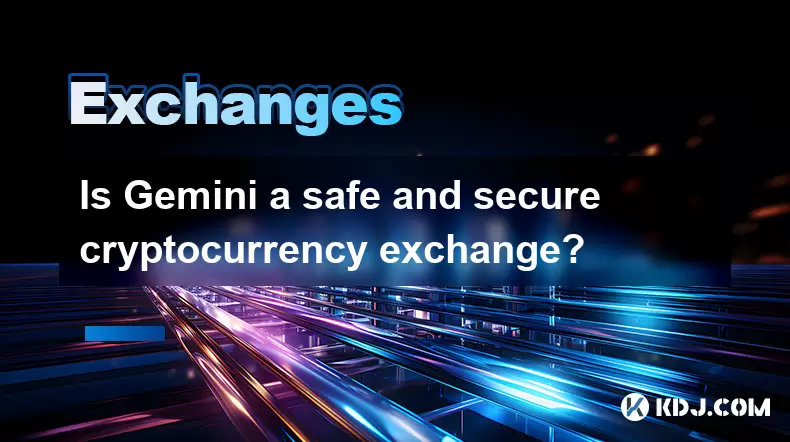
Is Gemini a safe and secure cryptocurrency exchange?
Aug 02,2025 at 10:42pm
Understanding Gemini’s Regulatory ComplianceGemini is a New York State-chartered trust company, which places it under the supervision of the New York ...
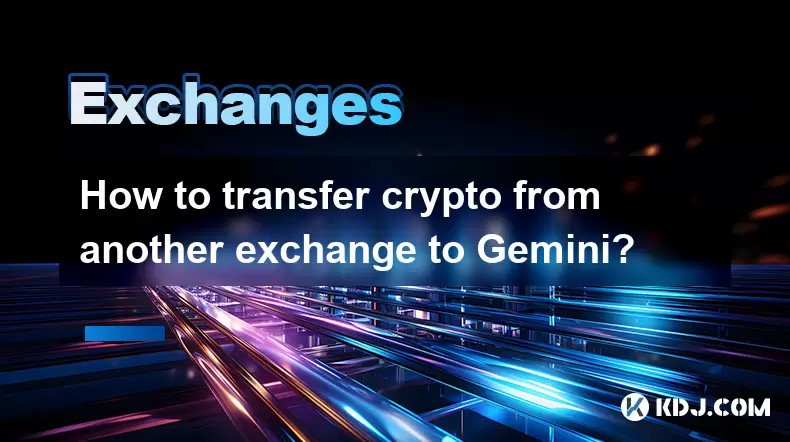
How to transfer crypto from another exchange to Gemini?
Aug 02,2025 at 07:28pm
Understanding the Basics of Crypto Transfers to GeminiTransferring cryptocurrency from another exchange to Gemini involves moving digital assets from ...
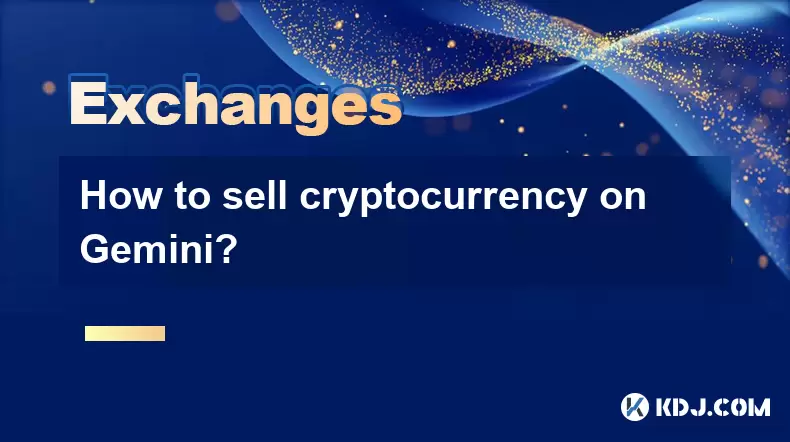
How to sell cryptocurrency on Gemini?
Aug 02,2025 at 05:07pm
Understanding the Gemini Platform and Account SetupBefore selling cryptocurrency on Gemini, it’s essential to ensure you have a fully verified account...
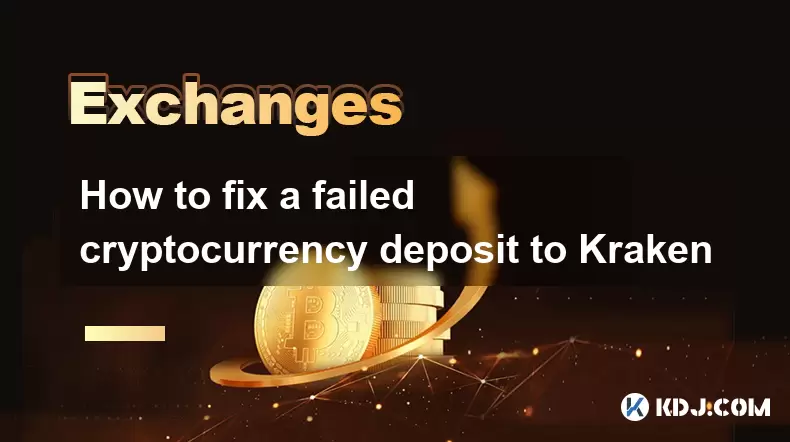
How to fix a failed cryptocurrency deposit to Kraken
Aug 02,2025 at 03:22pm
Understanding Why a Cryptocurrency Deposit Fails on KrakenWhen a cryptocurrency deposit fails on Kraken, the issue typically stems from one of several...
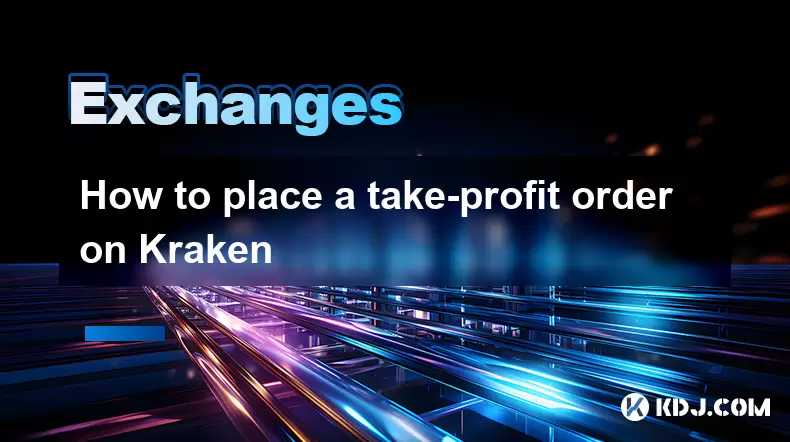
How to place a take-profit order on Kraken
Aug 02,2025 at 02:28pm
Understanding the Role of Private Keys in Cryptocurrency SecurityIn the world of cryptocurrency, private keys are the most critical component of digit...

How to understand the Gemini order book?
Aug 02,2025 at 03:35pm
What Is the Gemini Order Book?The Gemini order book is a real-time ledger that displays all open buy and sell orders for a specific cryptocurrency tra...

Is Gemini a safe and secure cryptocurrency exchange?
Aug 02,2025 at 10:42pm
Understanding Gemini’s Regulatory ComplianceGemini is a New York State-chartered trust company, which places it under the supervision of the New York ...

How to transfer crypto from another exchange to Gemini?
Aug 02,2025 at 07:28pm
Understanding the Basics of Crypto Transfers to GeminiTransferring cryptocurrency from another exchange to Gemini involves moving digital assets from ...

How to sell cryptocurrency on Gemini?
Aug 02,2025 at 05:07pm
Understanding the Gemini Platform and Account SetupBefore selling cryptocurrency on Gemini, it’s essential to ensure you have a fully verified account...

How to fix a failed cryptocurrency deposit to Kraken
Aug 02,2025 at 03:22pm
Understanding Why a Cryptocurrency Deposit Fails on KrakenWhen a cryptocurrency deposit fails on Kraken, the issue typically stems from one of several...

How to place a take-profit order on Kraken
Aug 02,2025 at 02:28pm
Understanding the Role of Private Keys in Cryptocurrency SecurityIn the world of cryptocurrency, private keys are the most critical component of digit...
See all articles

























































































